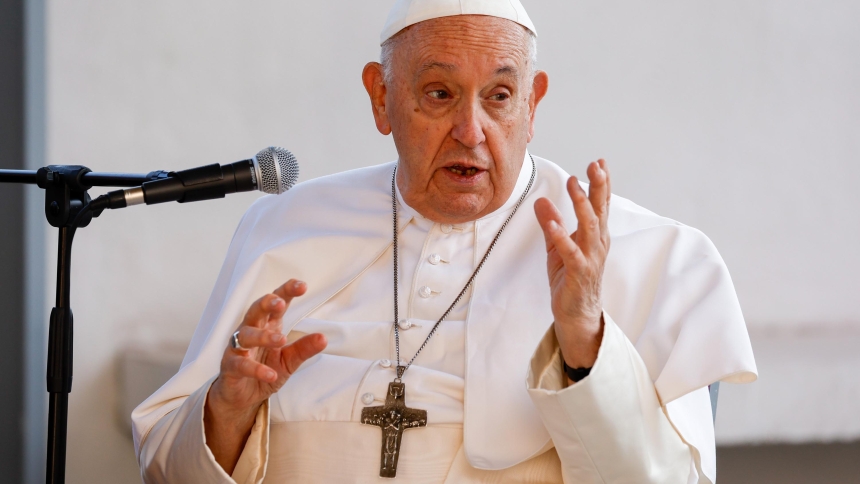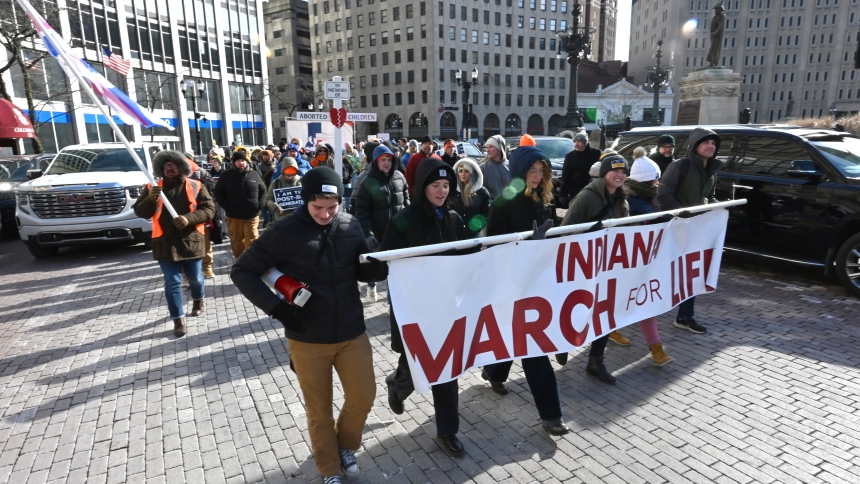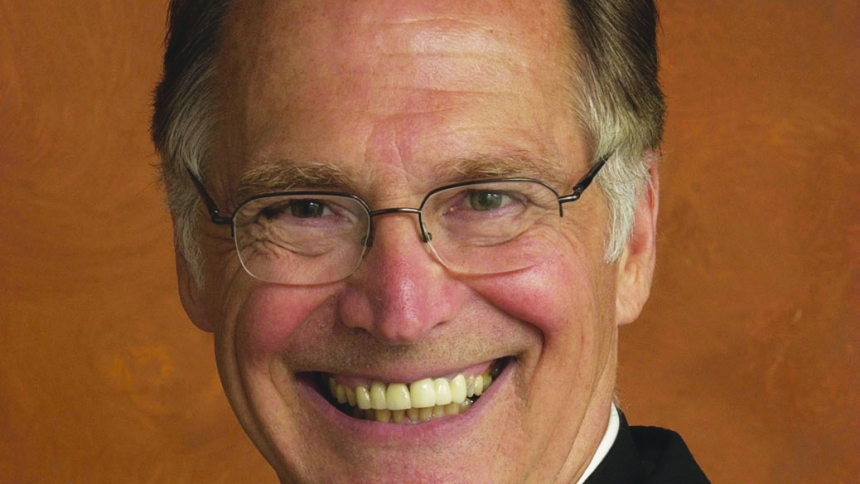
(OSV News) - "We also have to say 'thou shalt not' to an economy of exclusion and inequality. Such an economy kills."
Among the many pronouncements Pope Francis made during his 12-year papacy, his repeated insistence on the lethal capacity of the worldwide economic system - not just the theoretical, but literally fatal, impact it can exert on people who are poor or marginalized - remains provocative to some and inspiring to others.
His landmark apostolic exhortation, "Evangelii Gaudium" ("The Joy of the Gospel"), delivered in 2013, the first year of his pontificate, linked the "economy of exclusion" with a growing "'throw away' culture" where the "excluded are not the 'exploited' but the outcast, the 'leftovers.'"
Owing to such observations and teaching - as well as to being the first pope from the Global South, sometimes seen as a post-World War II "laboratory of socialism" - Pope Francis, who died April 21 at age 88, was not infrequently branded an economic radical.
But just how revisionist were his pronouncements, compared with the tradition of the church?
"Despite some of the claims of his critics, there's actually a direct continuity between what he said on economics and what previous popes have said on economics," said Anthony Annett, author of "Cathnomics: How Catholic Tradition Can Create a More Just Economy." He added, "If you look at John Paul (II), if you look at Benedict (XVI) ... they certainly had the same message."
"Just like John Paul II, Francis condemned new liberalism by name," Annett continued, referring to the use of economic reform to create welfare states with considerable state intervention in the overall economic health of a country. "And Pope Benedict in 'Caritas in Veritate' ('Charity in Truth'), called for a complete restructuring of the way the economy works after the global financial crisis. It's a fairly radical document," he added about the pope's 2009 encyclical.
Reflecting on Pope Francis' legacy, Annett finds it inseparable from Catholic social teaching.
"What I think Pope Francis brought was a more passionate, urgent stance and voice to this debate," said Annett. "He really put Catholic social teaching on economics front and center of his pontificate -- the call for a just economy; for social justice; the call -- as he called it -- to hear the cry of the earth and the cry of the poor. So that's what I would say would be his main legacy, in terms of Catholic social teaching."
It's a continuity Annett doesn't expect to see broken.
"I will be extremely surprised if the next pope moved away from that. You might not get a kind of passionate language that we associate with Pope Francis, but I think you would get the substance -- because modern Catholic social teaching has existed in this present form since 'Rerum Novarum' in the late 19th century, and that is never going to change."
"Rerum Novarum" ("Of New Things") - an 1891 encyclical by Pope Leo XIII outlining Catholic economic and social doctrine in response to the pressures of the Industrial Revolution - is widely regarded as the founding document of Catholic social teaching, exerting its influence upon every pontificate since.
"Catholic social thought is not the agenda of a political party," explained Jesús Fernández-Villaverde, a professor of economics at the University of Pennsylvania and president of the Catholic Research Economists Discussion Organization, or CREDO.
"Catholic social thought is not, 'We are going to increase the income tax by 3%, or we are going to lower the property tax by 10%.' Catholic social thought is a set of principles, and ideas, and goals, and aspirations," said Fernández-Villaverde.
"Catholic thought has always emphasized that any economic system needs to be oriented towards the common good; that a market and private property play a very important role in achieving that common good. But at the same time," he emphasized, "we should not be uncritical with respect to markets - and understand that in many situations, markets do not work well."
Fernández-Villaverde said the pontiff's message concerning a "killer economy" was more of a call to a wider circle of awareness than a specific set of economic proposals or prescriptions.
"What I think that Pope Francis was trying to say with that statement is that we are in an economy that, unfortunately, doesn't put human life at its very center," he reflected. "And that there are things we can do to change that. You and I may have slightly different ideas about how do we do it in practice -- but this is a call."
Indeed, Pope Francis directly said so in his 2020 encyclical, "Fratelli Tutti, on Fraternity and Social Friendship," emphasizing that "there is no one solution, no single acceptable methodology, no economic recipe that can be applied indiscriminately to all."
Instead, Pope Francis' "school of economics" reflected the constant, ordinary concern of the Catholic Church for millennia: the poor.
"These days," Pope Francis said in his 2015 encyclical, "Laudato Si', on Care for Our Common Home," the world's excluded people "are mentioned in international political and economic discussions, but one often has the impression that their problems are brought up as an afterthought, a question which gets added almost out of duty or in a tangential way, if not treated merely as collateral damage. Indeed, when all is said and done, they frequently remain at the bottom of the pile."
In economic discussions and decisions, Pope Francis believed, the poor deserve a place at the table.
"Stop listening exclusively to the economic elites, who so often spout superficial ideologies that ignore humanity's real dilemmas," he told the representatives of popular movements -- activists working on a wide variety of justice causes -- in a 2021 talk. He further encouraged them to serve "the people who demand land, work, housing and good living."
In his 2013 apostolic exhortation "Evangelii Gaudium" ("The Joy of the Gospel"), Pope Francis' censure of trickle-down economics -- "which assume that economic growth, encouraged by a free market, will inevitably succeed in bringing about greater justice and inclusiveness in the world" -- managed to annoy its adherents by questioning their faith in the theory as "a crude and naive trust in the goodness of those wielding economic power and in the sacralized workings of the prevailing economic system."
"Meanwhile," Pope Francis admonished, "the excluded are still waiting."
To those who interpret such criticisms as being anti-capitalist, Joseph Kaboski - a professor of economics at the University of Notre Dame - has a reminder.
"The Vatican keeps a record of every public talk the pope has ever given, and the only times he used the word 'capitalism' were to a group on inclusive capitalism, where he commended their efforts to make capitalism more inclusive, and," Kaboski continued, "in talking to the Economy of Francesco" - an annual gathering since 2020 inspired by the example of St. Francis of Assisi - "where he talked about the shortcomings of 'our capitalism.'"
"Neither," observed Kaboski, "seem like the words of someone inherently anti-capitalist, but instead a measured critic of the shortcomings of our economy."
Those economic shortcomings, Kaboski said, are essentially related to human attitudes - which ostensibly, can change.
Pope Francis, Kaboski added, "talked about a 'throwaway culture' and an idolatry of money, capital and profit. Those are attitudes that misplace means for ends - or worse yet, put ourselves above God or things above people."
As to the pontiff's legacy, Kaboski was reflective.
"People's views on his papacy have become quite polarized, unfortunately," he noted. "So I'm sure there will be a variety of opinions, for better or worse."
But ultimately, Kaboski said, Pope Francis was a pastor.
"Not everything he wrote on the economy was perfectly informed," Kaboski said. "But that is always true of popes - and economists, too!"
Caption: Pope Francis speaks to people who find themselves in a situation of economic hardship at the house of the Missionaries of Charity in Marseille, France, Sept. 23, 2023. Pope Francis, formerly Argentine Cardinal Jorge Mario Bergoglio, died April 21, 2025, at age 88. (CNS photo/Lola Gomez)



